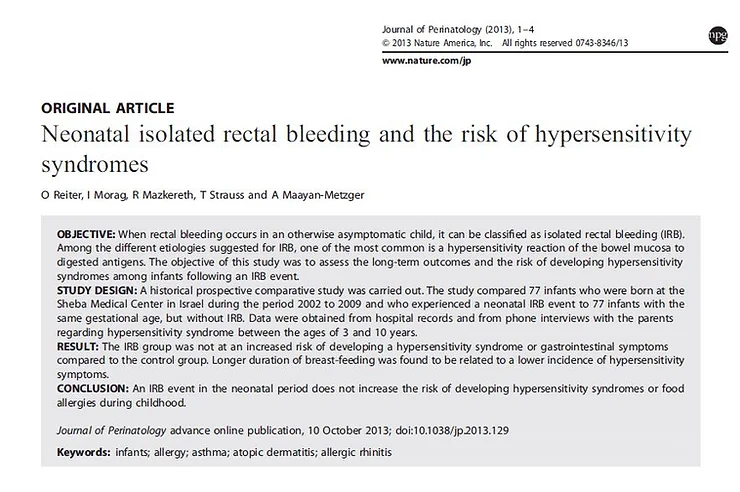O Reiter 1, I Morag 1, R Mazkereth 1, T Strauss 1, A Maayan-Metzger 1
Affiliations expand
- PMID: 24113397
- DOI: 10.1038/jp.2013.129
Abstract
Objective: When rectal bleeding occurs in an otherwise asymptomatic child, it can be classified as isolated rectal bleeding (IRB). Among the different etiologies suggested for IRB, one of the most common is a hypersensitivity reaction of the bowel mucosa to digested antigens. The objective of this study was to assess the long-term outcomes and the risk of developing hypersensitivity syndromes among infants following an IRB event.
Study design: A historical prospective comparative study was carried out. The study compared 77 infants who were born at the Sheba Medical Center in Israel during the period 2002 to 2009 and who experienced a neonatal IRB event to 77 infants with the same gestational age, but without IRB. Data were obtained from hospital records and from phone interviews with the parents regarding hypersensitivity syndrome between the ages of 3 and 10 years.
Result: The IRB group was not at an increased risk of developing a hypersensitivity syndrome or gastrointestinal symptoms compared to the control group. Longer duration of breast-feeding was found to be related to a lower incidence of hypersensitivity symptoms.
Conclusion: An IRB event in the neonatal period does not increase the risk of developing hypersensitivity syndromes or food allergies during childhood.


